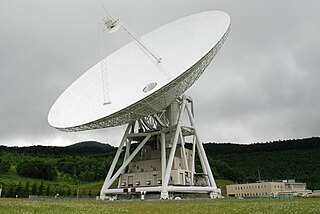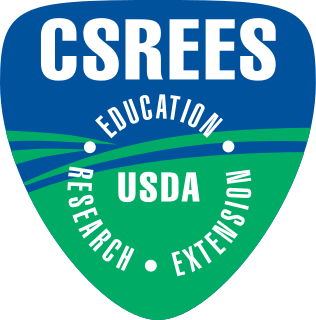This page is based on this
Wikipedia article Text is available under the
CC BY-SA 4.0 license; additional terms may apply.
Images, videos and audio are available under their respective licenses.

The United States Secretary of Agriculture is the head of the United States Department of Agriculture. The Secretary of Agriculture is former Georgia Governor Sonny Perdue. Perdue took office on April 25, 2017 after being confirmed by the U.S Senate 87-11. The position carries similar responsibilities to those of agriculture ministers in other governments.

The Morrill Land-Grant Acts are United States statutes that allowed for the creation of land-grant colleges in U.S. states using the proceeds of federal land sales. The Morrill Act of 1862 was enacted during the American Civil War and the Morrill Act of 1890 expanded this model.

The United States Fish and Wildlife Service is an agency of the US Federal Government within the US Department of the Interior dedicated to the management of fish, wildlife, and natural habitats. The mission of the agency is "working with others to conserve, protect, and enhance fish, wildlife, plants and their habitats for the continuing benefit of the American people."

A cooperative is "an autonomous association of persons united voluntarily to meet their common economic, social, and cultural needs and aspirations through a jointly-owned and democratically-controlled enterprise". Cooperatives may include:
The term computer-supported cooperative work (CSCW) was first coined by Irene Greif and Paul M. Cashman in 1984, at a workshop attended by individuals interested in using technology to support people in their work. At about this same time, in 1987 Dr. Charles Findley presented the concept of Collaborative Learning-Work.
According to Carstensen and Schmidt, CSCW addresses "how collaborative activities and their coordination can be supported by means of computer systems". On the one hand, many authors consider that CSCW and groupware are synonyms. On the other hand, different authors claim that while groupware refers to real computer-based systems, CSCW focuses on the study of tools and techniques of groupware as well as their psychological, social, and organizational effects. The definition of Wilson (1991) expresses the difference between these two concepts:
CSCW [is] a generic term, which combines the understanding of the way people work in groups with the enabling technologies of computer networking, and associated hardware, software, services and techniques.

A land-grant university is an institution of higher education in the United States designated by a state to receive the benefits of the Morrill Acts of 1862 and 1890.

Cooperation is the process of groups of organisms working or acting together for common, mutual, or some underlying benefit, as opposed to working in competition for selfish benefit. Many animal and plant species cooperate both with other members of their own species and with members of other species.
The National Institute of Arthritis and Musculoskeletal and Skin Diseases (NIAMS) is one of the institutes and centers that make up the National Institutes of Health, an agency of the United States Department of Health and Human Services (HHS).

The Farm Credit Act of 1933 established the Farm Credit System (FCS) as a group of cooperative lending institutions to provide short-, intermediate-, and long-term loans for agricultural purposes. Specifically, it authorized the Farm Credit Administration (FCA) to create 12 Production Credit Associations (PCAs) and 12 Banks for Cooperatives (BCs) alongside the 12 established Federal Land Banks (FLBs), as well as a Central Bank for Cooperatives.
This is a partial list of Korea-related topics beginning with N. For Korean words starting with ㄴ or ㄹ, see also under R.

Cooperative banking is retail and commercial banking organized on a cooperative basis. Cooperative banking institutions take deposits and lend money in most parts of the world.
In the United States, a cooperative research and development agreement is an agreement between a government agency and a private company or university to work together on research and development.

The Agricultural Fair Practices Act of 1967 was enacted to protect farmers from retaliation by handlers because the farmers are members of a cooperative. The act permits farmers to file complaints with USDA, which can then institute court proceedings, if they believe their rights under the law have been violated. Several bills have been introduced in recent years on behalf of producers to give them more bargaining power under the Act, which, some producers contend, lacks adequate enforcement authorities.

The Food, Agriculture, Conservation, and Trade (FACT) Act of 1990 — P.L. 101-624 was a 5-year omnibus farm bill that passed Congress and was signed into law.

The Farm Credit Act of 1971 recodified all previous acts governing the Farm Credit System (FCS), a cooperatively owned government-sponsored enterprise (GSE) that provides credit primarily to farmers and ranchers.

Usuda Deep Space Center is a facility of the Japan Aerospace Exploration Agency It is a spacecraft tracking station
opened in October, 1984. The main feature of the station is a 64-meter beam waveguide antenna.

The Networking and Information Technology Research and Development (NITRD) program consists of a group of U.S. federal agencies to research and develop information technology (IT) capabilities to empower Federal missions; support U.S. science, engineering, and technology leadership; and bolster U.S. economic competitiveness.
The National Institute of Diabetes and Digestive and Kidney Diseases (NIDDK) is part of the United States National Institutes of Health, which in turn is part of the Department of Health and Human Services. NIDDK is approximately the fifth-largest of the 27 NIH institutes. The institute's mission is to support research, training, and communication with the public in the topic areas of "diabetes and other endocrine and metabolic diseases; digestive diseases, nutritional disorders, and obesity; and kidney, urologic, and hematologic diseases". As of 2015, the Director of the institute is Griffin P. Rodgers, who assumed the position on an acting basis in 2006 and on a permanent basis in 2007.

The Cooperative State Research, Education, and Extension Service (CSREES) is an extension agency within the U.S. Department of Agriculture (USDA), part of the executive branch of the federal government. The 1994 Department Reorganization Act, passed by Congress, created CSREES by combining the former Cooperative State Research Service and the Extension Service into a single agency.










